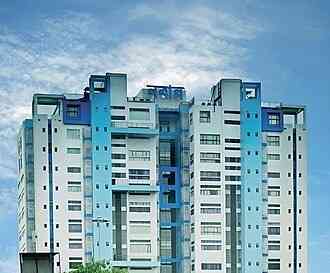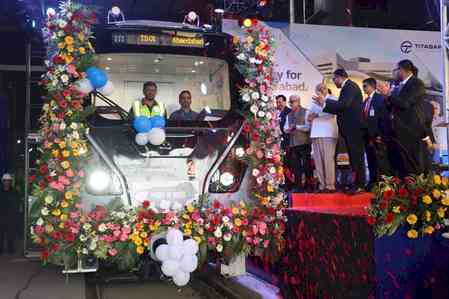Enhancing Lives Through Robotic Renal Transplants: The Advantages Unveiled
The approximate prevalence of chronic kidney disease in India is 800 per 10 lakhs of people, while the incidence of end-stage renal disease (ESRD) is 150–200 per 10 lakhs. Diabetes and hypertension are the leading cause of End -stage renal disease. Diabetic nephropathy is the most common cause of ESRD. ESRD is a significant health issue in India, with a growing number of cases.Dialysis and kidney transplantation are the primary treatment options.

by Dr Shafiq Ahmed, Director - Urology, Andrology & Renal Transplant at BLK-Max Super Speciality Hospital, New Delhi
The approximate prevalence of chronic kidney disease in India is 800 per 10 lakhs of people, while the incidence of end-stage renal disease (ESRD) is 150–200 per 10 lakhs. Diabetes and hypertension are the leading cause of End -stage renal disease. Diabetic nephropathy is the most common cause of ESRD. ESRD is a significant health issue in India, with a growing number of cases.Dialysis and kidney transplantation are the primary treatment options.
Regular dialysis sessions are crucial for those unable to undergo Renal transplantation. Chronic Renal failure patients need to adhere to specific dietary restrictions, such as limiting salt, potassium, and phosphorus intake. Dieticians can guide regarding the type of diet they should consume. Regular monitoring of blood pressure, blood sugar, and other relevant parameters is essential. Regular visits to the health centre is necessary for effective management. The underlying condition should be treated. Strict adherence to prescribed medications is vital for controlling underlying conditions and preventing complications.
Living with ESRD can be emotionally challenging. Support from family, friends, and support groups can significantly improve the patient's well-being.
ESRD patients are more susceptible to infections. Following good hygiene practices and getting vaccinated as recommended can help patient to avoid getting infections.
Renal transplantation can help the patient to improve the renal function and quality of life. The surgical approach has changed from open to minimally invasive approach to provide better surgical outcome to renal transplant recipient.
Robotic surgery has evolved over the years and has made a place in renal transplant recipient surgery as well. Robotic assisted renal transplant is minimally invasive approach for renal transplant recipient. It offers numerous benefits, including reduced postoperative pain, shorter hospital stays, and faster recovery.
Advantages of Robotic Renal Transplant:
- Minimally Invasive: The use of robotics and smaller incisions reduces trauma to the body, leading to less pain and faster healing.
- Shorter Hospital Stay: Patients often spend less time in the hospital, allowing them to return to their daily lives sooner.
- Improved Surgical Precision: The robotic system offers enhanced dexterity and precision, leading to more accurate connections and better outcomes.
- Reduced Scarring: Smaller incisions result in less scarring and improved cosmetic outcomes.


 City Air News
City Air News 









